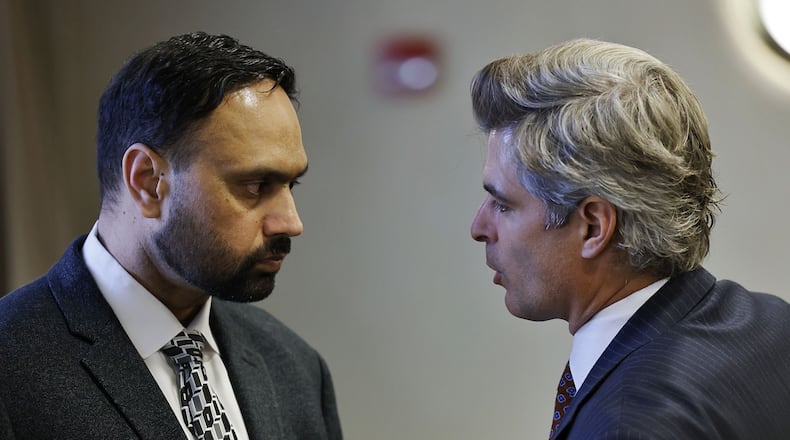Singh is accused of killing his wife, Shalinderjit Kaur, 39; his in-laws, Hakikat Singh Pannag, 59, and Parmjit Kaur, 62; and his aunt by marriage, Amarjit Kaur, 58, at their residence on Wyndtree Drive.
After the legal process slowed down due to COVID-19 pandemic safety issues and legal maneuvering, it appears Singh will finally get his day in court when his trial begins on Oct. 3. His attorneys maintain Singh is innocent.
The family members were all shot and dead when West Chester Police arrived at the Wyndtree Drive after Singh called 911.
Singh was outside in the stairwell covered in blood crying that his family bleeding. He was questioned for hours by police, but released.
He was indicted in August 2019 and arrested in Connecticut.
The father of three young children who was a self-employed truck driver running his own company before his arrest, Singh is being held without bond in the Butler County Jail. He is a native of India but has been a United States citizen since 2009.
During Tuesday’s hearing, the defense also asked for approval of $6,000 to bring Singh’s parents and religious Guru from India to Ohio for the mitigation phase of the trial that happens if Singh is convicted.
In the request, the defense pointed out Singh, who they say is now indigent, is not a native of the United States, needs the witnesses who know him best and will able to “attest to his life, culture and upbringing.”
The prosecution expressed concern that there may be difficulties getting visas for the family members and other requirements, such as COVID-19 vaccination status, that could slow down the travel process. The prosecution suggested testimony via video might an option.
Howard, who before taking the bench, defended 25 death penalty cases, said as an attorney he would want mitigation witnesses to testify in person in the courtroom. But he made it clear the trial would not be continued for the witness logistics.
“If we get to the mitigation phase, if their visas aren’t ready and they aren’t here we are not continuing the case,” Howard said. If that happened other arrangements could be made for testimony via video, the judge said. He approved the travel expenses.
Butler County Common Pleas Judge Greg Howard has ordered 150 prospective jurors for the first day of selection and another 150 for the second day if necessary.
The trial will be on the fourth floor of the Butler County court wing in a newly completed super courtroom that will accommodate more observers and is equipped with updated technology for presentation to the jury. The trial is expected to last three weeks.
Subpoena issuing began last month and includes police officers, Ohio Bureau of Criminal Investigation agents, keepers of records from banks, United Airlines, cell phone companies, and local, Indiana and Kentucky residents.
Hotel rooms have been booked and security arranged if the jury should require sequestration. By law, in a death penalty case, the jury must be sequestered during deliberations. If the defendant is convicted they are also required to the sequestered while deliberating a penalty recommendation following the mitigation phase.
If the defendant is convicted, the jury will consider recommendation of one of five penalties, including death, life in prison without parole, 20 years to life, 25 years to life or 30 years to life. It is up to the judge to decide whether or not to follow the jury’s recommendation and ultimately impose the sentence.
About the Author


